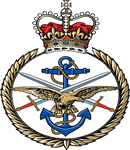Commemorated: | |||
| 1. Memorial: | Basra Memorial | Panel 52 Basra | |
| 2. Book: | The (1921) Masonic Roll of Honour 1914-1918 | Pg.139 | |
| 3. Memorial: | The (1940) Scroll - WW1 Roll of Honour | 47B GQS | |
Awards & Titles: | |||
Early Life :
Born in Almora, India in 1891.Education & Career :
Blundells School (appears on their memorial).
Service Life:
Campaigns:
- The First World War 1914-1918, World-wide.
| Unit / Ship / Est.: 2nd Battalion King Edward's Own Gurkha Rifles (The Sirmoor Rifles) |
| Action : Mesopotamia |
At the outbreak of war the British, together with Indian troops, resolved to protect oil supply in the region by occupying the area around Basra at Abadan. This evolved into a series of campaigns towards Baghdad against the Turkish forces as Mesopotamia (modern Iraq) was part of the Ottoman Empire. Meetings in late 1914 and into 1915 led the Viceroy and Indian government at Simla to reconsider the limited involvement of troops and they decided to order further advances with a view to securing the Shatt-al-Hai, a canal connecting the Tigris and Euphrates river and potentially capturing Baghdad. The British government disagreed and wished to conserve forces for the Western front. The Viceroy was given permission to act as it wished, but told in no uncertain terms that no reinforcements should be expected.
The initial success experienced by the British and Indian forces quickly disintegrated in the face of Ottoman opposition. The Siege of Kut-Al-Amara began on 7th December with the besieging of an 8,000 strong British-Indian garrison in the town of Kut, 100 miles south of Baghdad, by the Ottoman Army. These campaigns produced few tactical benefits, indeed the catastrophic defeat at Kut in 1916 was a major setback. Badhdad was eventually taken in March 1917.
The conditions in Mesopotamia were dreadful. The climate, sickness and disease produced large losses in addition to battle casualties. About as many men died of disease as were killed in action. The Mesopotamia front was part of a strategy hoping for success at lower cost than the Western Front but no decisive victory was achieved.
Masonic :
| Type | Lodge Name and No. | Province/District : |
|---|---|---|
| Mother : | McMahon No. 3262 E.C. | London |
| Joined : | Siwalik No. 2939 E.C. | Bengal |
Initiated | Passed | Raised |
6th September 1911 | 14th September 1911 | 21st September 1911 |
Initiated into McMahon Lodge under unusual circumstances. It appears that two members with the name Nigel Gresley Woodyatt undertook the same ceremony on the same day. This continues for the Passing and raising. The difference in the entries is that one is aged 50 and a Lieut-Col, whereas our man is 21 and a Lieutenant. Nigel, the younger, resigned 31st December 1911. Both went through the ceremonies within 1 month, perhaps leading to the conclusion that Nigel, the younger, was leaving Quetta and this was accelerated for the pair to go through together.
Joined Siwalik Lodge No. on 18th April 1912. He was appointed the office of Junior Deacon.
Source :
The project globally acknowledges the following as sources of information for research across the whole database:
- The Commonwealth War Graves Commission
- The (UK) National Archives
- Ancestry.co.uk - Genealogy, Family Trees & Family History online
- ugle.org.uk - The records of the United Grand Lodge of England including the Library and Museum of Freemasonry
Additional Source:
- Founder Researchers : Paul Masters & Mike McCarthy
- Researcher : Bruce Littley

